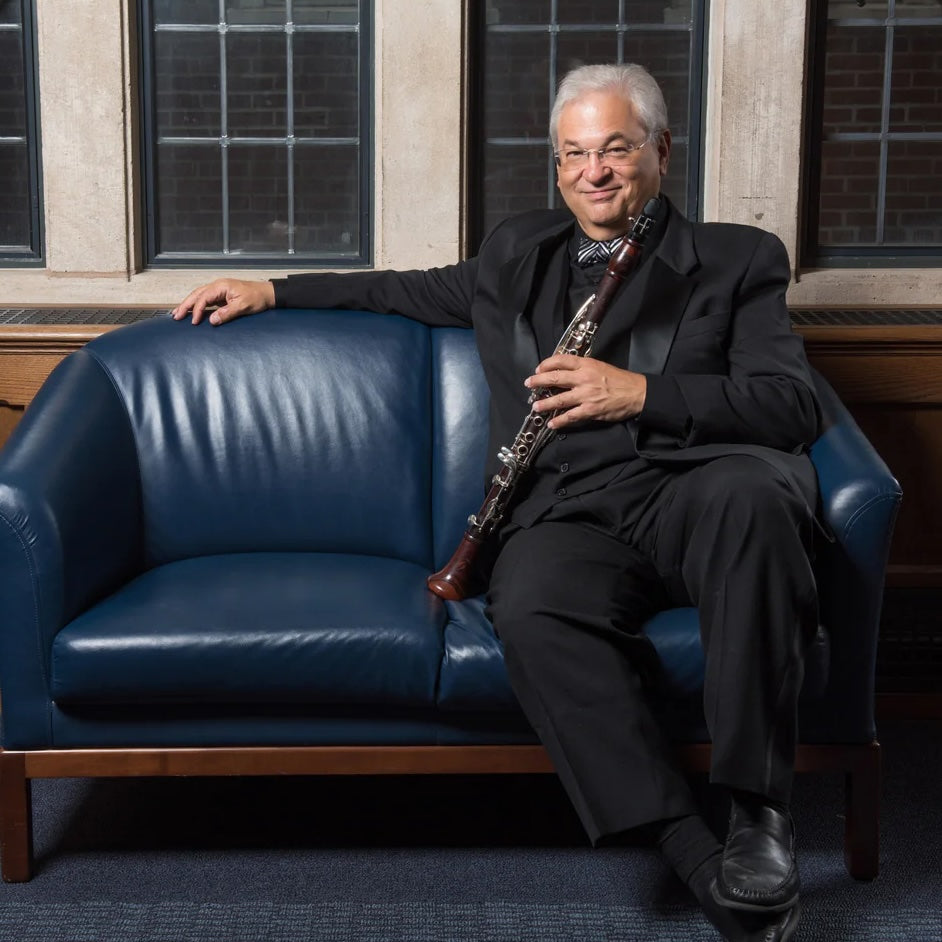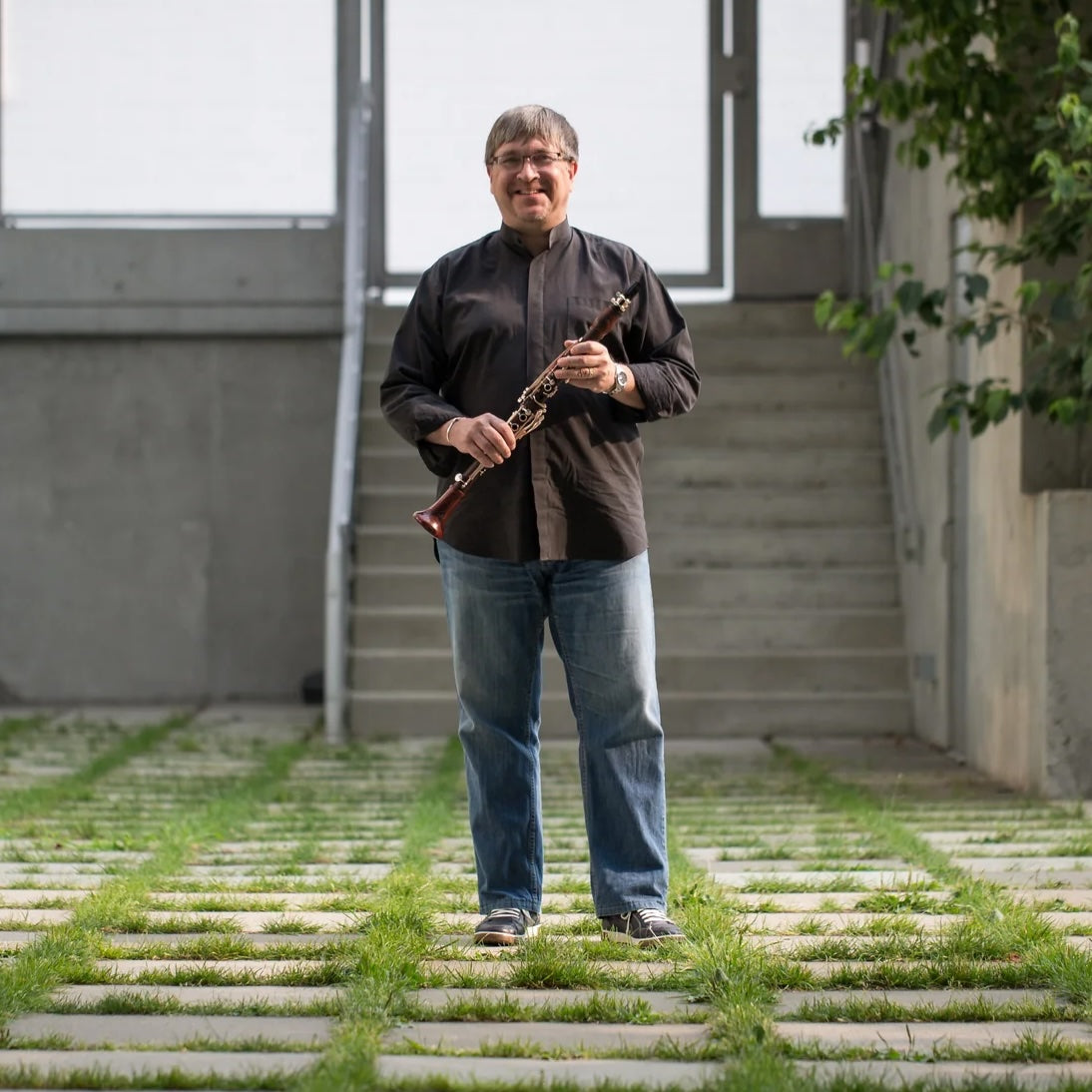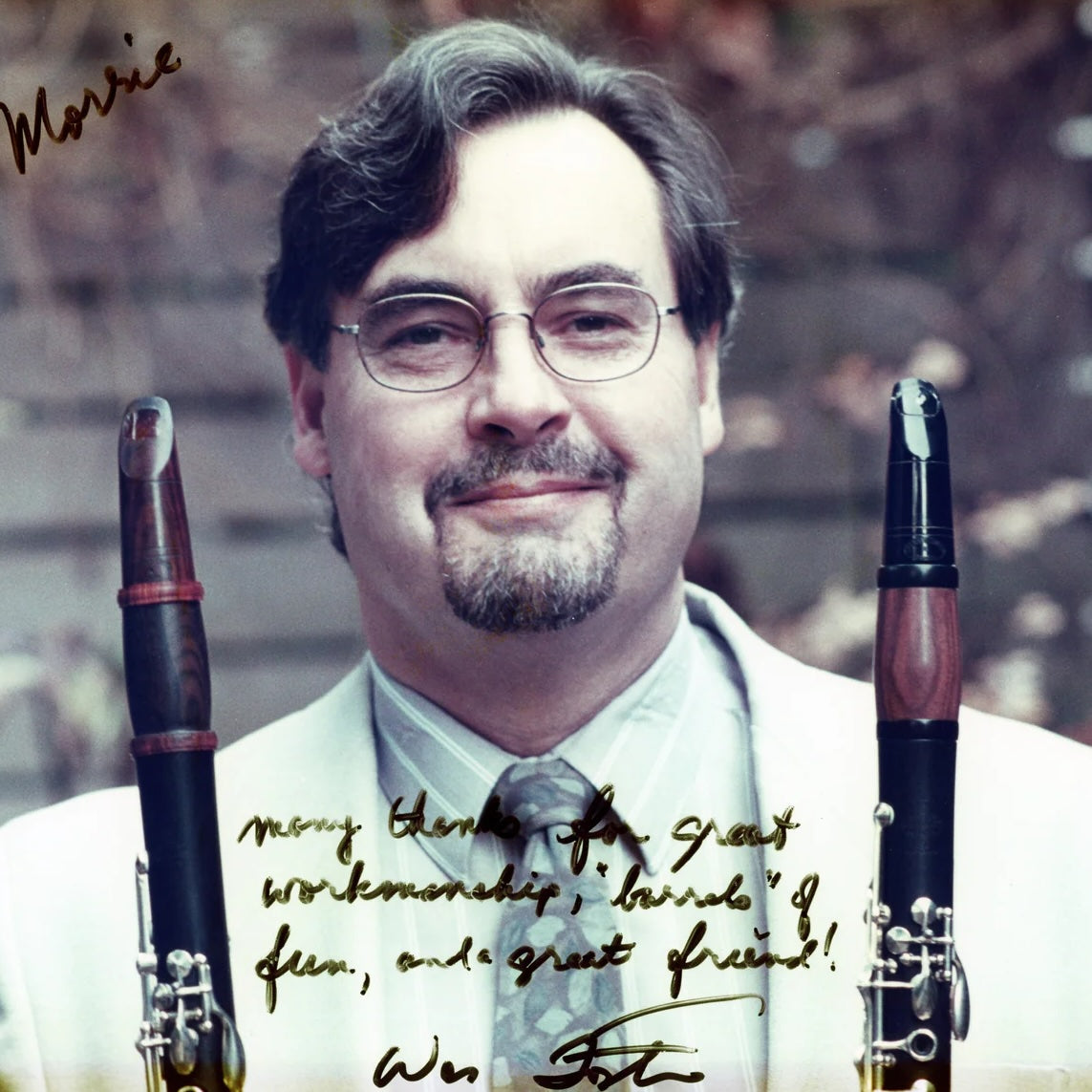When David Shifrin was a student, he told his teachers that he wanted to do many different kinds of work when he became a professional musician. They weren’t having it.
“I enjoyed playing chamber music and doing solo work, and I enjoyed playing in the orchestra at school at Interlochen and Curtis. I wanted a career like that. I went to competitions and had some solo opportunities. I talked to my teachers about it, and pretty much everyone said that if you want to have a career playing the clarinet, the only path really is to practice for orchestra auditions. There’s a lot of truth in that, to be very honest. For most people, the way to make a living as a professional classical musician is to play in an orchestra or to get an advanced degree and teach at a university and be primarily a teacher.”
Now, at age sixty-five, David Shifrin is a teacher, a soloist, a chamber musician, and a creative director, and he’s as concerned with creating audiences for his music as he is with playing it. In other words, though he tried very hard to take his early teachers’ advice, over his fifty-year career, he’s ended up pursuing all the varied aspects of professional music that excited him when he was just starting out.
By the time he was in his early twenties, Shifrin had been a member of four different orchestras, moving up in position until he was Principal Clarinet in The Cleveland Orchestra. “It was all-consuming,” he told me on the phone from his office at Yale University. “I had mixed success and mixed satisfaction [during that time]. Cleveland is one of the great orchestras. I enjoyed it. For me, it was kind of overwhelming and consuming.”
After three years in Cleveland, he moved on to teach full time at the University of Michigan, which he describes as requiring quite an adjustment: “While teaching was very satisfying, I really missed the amount of playing I was doing, the actual music-making. I was making music by working with the students, but I wasn’t performing, except on an occasional basis. I was still in my twenties then and finding my way. So I practiced really hard. In addition to my teaching, I went to some competitions and had some success, won some prizes, started accepting invitations to play in various places and chamber music festivals.”
At this point in his career, Shifrin began commuting part-time to play with the Los Angeles Chamber Orchestra while still teaching in Michigan. “So many musicians do that these days: live in one place for one thing and commute to another place for something else. That’s part of the price that you pay to attempt to have it all. You have to cope with the geography.”
Shifrin joined the faculty at Yale in 1987 and has been there ever since, though he still copes with the geography. In addition to serving as the Artistic Director of the Chamber Music Society of Yale and Yale’s annual concert series at Carnegie Hall, and having held the same position at the Chamber Music Society of Lincoln Center for twelve years starting in the early nineties, he has also served as the Artistic Director of Chamber Music Northwest, far across the continent in Portland, Oregon, since 1981.
The Business
It’s as if the business of music is Shifrin’s playground. Ill content to go up and down on the seesaw over and over again, he insists on spending time on the swings, the slide, and the jungle gym, too, all the while inviting others to join him.
“When I first started [with Chamber Music Northwest] in Portland in the late seventies or early eighties,” he explains, “people would say, ‘Look out at the audience. Everyone has grey hair. What are we going to do in thirty years when this audience is gone?’ Well, the audience is even bigger now and they still have grey hair, but there are a lot of reasons that people go to concerts later in life. But at the same time, we are attracting more younger people, and it’s always the people who are exposed to and have some hands-on association with music early in their life: they play an instrument, have someone in their family that plays an instrument or teaches kids about music. It becomes a language that they learn. Sometimes people are exposed to music early in life but just don’t have the resources or the time to attend the concerts. Those are some of the grey hairs that we see in the concert hall.”
And so this principal clarinetist, who enjoys playing with chamber ensembles as much as he does being part of an orchestra, is also involved with nurturing and teaching students and audiences of all ages.
Thinking back to the advice he was given as a student – advice he grew to ignore in favour of creating his own very diversified career – I asked Shifrin if he counsels his students as he had been counselled, or if things have changed enough in the industry that he advises his students to follow the kind of wider path he himself has walked. “Absolutely [the latter], and I’m not alone. Most of the major music schools in the country now have either a career-development aspect to the program or a special course within the school in the business of music or in entrepreneurial skills and relating to audiences. More and more we’re requiring students to try to help build audiences and to create some of their own opportunities rather than simply locking themselves in a practice room and looking for the next opportunity to shine. Or for somebody to take over all of their concerns as a performer.
“The days are almost gone where a manager will take a precocious protégé under their wing and take care of absolutely everything for them and just send them out on stage. There are a few incredible geniuses for whom they probably have no other concerns than to just keep being a genius. Most people have to have the concerns of the world. Even if you read the letters of Beethoven and Mozart and Bach, there was a business aspect. Bach had to deliver his scores to the Margrave of Brandenburg-Schwedt. And Mozart was always applying to new royalties for the next position in teaching and church jobs. Beethoven was hankering for commissions and trying to figure out how to fix his situation where he’d be making friends with the patrons. We don’t live in a vacuum where all we need to do is play our music and everything else will fall into place. I think the sooner that music students, serious performance students, realize that there are many aspects to being a musician, the better.”
Winner of the 2000 Avery Fisher Prize, clarinetist David Shifrin has appeared with The Philadelphia and Minnesota Orchestras and the Dallas, Seattle, Houston, Milwaukee, Detroit, and Denver symphonies. He has performed recitals at Alice Tully Hall, Weill Recital Hall at Carnegie Hall, the 92nd Street Y in New York City, and at the Library of Congress in Washington, DC. In addition, he has appeared in recital and as soloist with orchestras throughout Europe and Asia. David Shifrin is a Backun Artist and performs on MoBa clarinets and mouthpieces.



